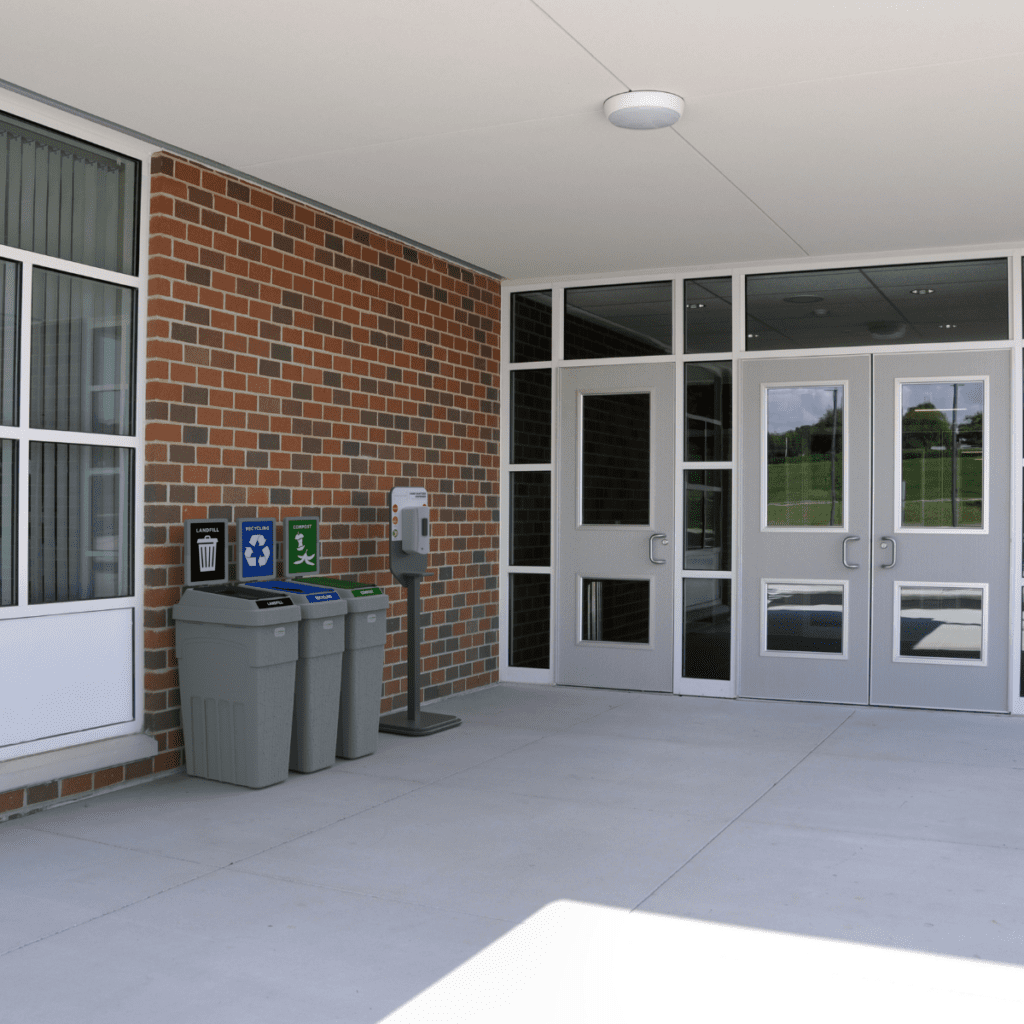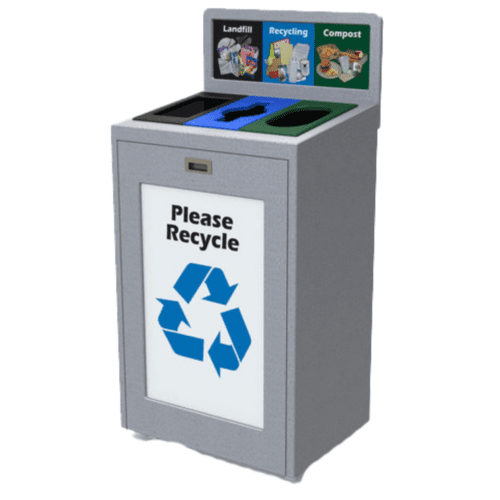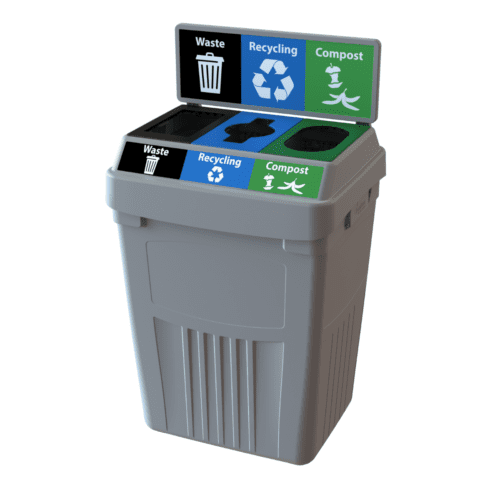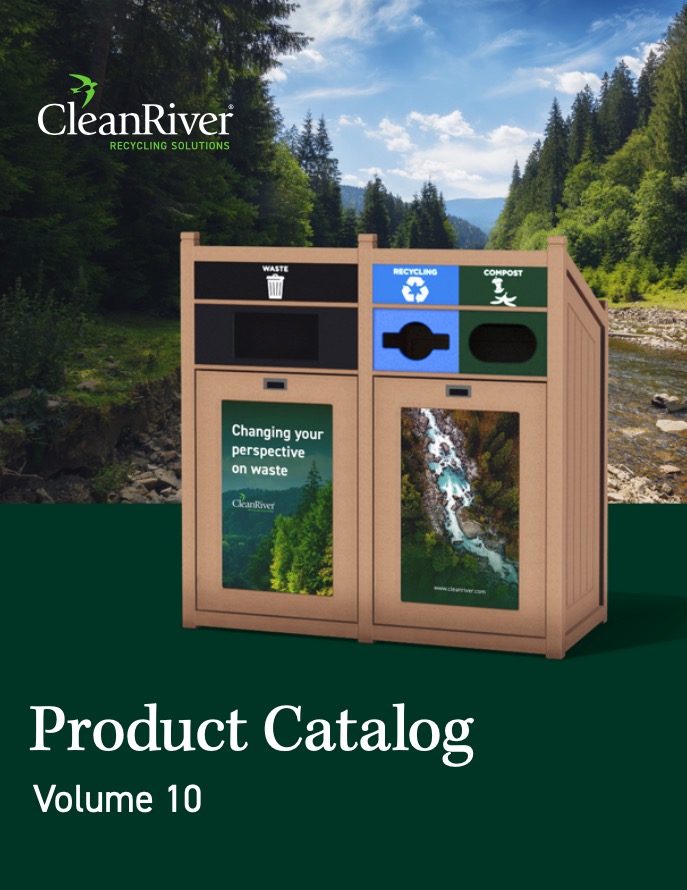Share
How Schools Can Help Reduce Food Waste
K-12 schools play a vital role in minimizing food waste through reduction, recovery, and recycling efforts. Additionally, they serve as key educational spaces where students can learn about the importance of food conservation. By adopting effective strategies, schools can ensure that nutritious meals are utilized efficiently while limiting waste. Recovering excess food for donation also supports families in need, promoting both sustainability and social responsibility.
One of the primary advantages of reducing food waste in schools is ensuring that students benefit fully from meal programs like the National School Lunch Program (NSLP) and the School Breakfast Program (SBP). When students consume the meals provided, they receive essential nutrients that support their growth and academic success.
Featured Bin: LeanStream
Practical Ways to Cut Down Food Waste in Schools
To successfully combat food waste, schools can implement various initiatives that promote mindful food consumption, waste reduction, and meal program efficiency. Here are some practical steps schools can take:
1. Implement an Offer-Versu
s-Serve (OVS) Model
The OVS model enables students to decline certain meal components, giving them more autonomy in their food choices while decreasing waste. This strategy is required in high schools but remains optional for elementary and middle schools. Research indicates that 81% of elementary and middle schools implementing OVS at lunchtime have seen a notable reduction in food waste.
2. Promote School Meals Effectively
Generating enthusiasm for school meals can encourage students to try and finish their food. Schools can achieve this by:
- Showcasing new menu items on serving lines
- Organizing taste tests and recipe contests
- Establishing student advisory groups to provide input on meal preferences and portion sizes
3. Extend Lunchtime Duration
Short lunch breaks often lead to unfinished meals. A survey conducted by NPR and the Harvard School of Public Health found that 20% of parents of K-5 students reported their child had 15 minutes or less to eat. Extending lunch periods to at least 30 minutes allows students more time to finish their meals, reducing overall food waste.
Featured Bin: Transition Tim
4. Introduce Share Tables
Designated share tables allow students to return unopened and uneaten food or beverage items, making them available to others who might want additional servings. The USDA supports this initiative and provides guidelines for proper implementation.
5. Allow Students to Save Food for Later
Permitting students to store certain meal components for later consumption can help reduce waste. However, this should be limited to non-perishable items that do not require refrigeration or reheating to maintain food safety standards.
Proper Disposal of Food Waste and the Importance of Composting
Even with effective waste reduction strategies, some food waste is inevitable. Schools must implement responsible disposal methods to minimize environmental impact. Common disposal methods include:
- Composting: Schools can establish on-site composting programs to turn organic waste into nutrient-rich soil, which can be used in school gardens or local farms.
- Food Recycling Programs: Partnering with local waste management services to recycle food waste into biofuel or animal feed.
- Anaerobic Digestion: Some schools work with facilities that break down food waste to produce renewable energy and fertilizers.

Featured Bin: Flex E
Why Readily Accessible Composting Matters
Having accessible composting bins in cafeterias and other dining areas encourages students and staff to properly separate organic waste from other trash. Composting not only reduces landfill waste but also educates students on environmental responsibility and sustainability. Schools can:
- Provide clear signage and training on proper composting practices.
- Incorporate composting education into science and environmental studies.
- Collaborate with local composting facilities to ensure efficient waste processing.
By prioritizing responsible food waste disposal and making composting a standard practice, schools can significantly reduce their environmental footprint while reinforcing valuable sustainability lessons.
Educational Resources to Support Food Waste Reduction
Raising awareness about food waste among students and staff can have a lasting impact on sustainability efforts. Schools can utilize the following resources:
- Student Food Waste Audit Guide – A step-by-step framework for measuring food waste in school cafeterias.
- Reducing Food Waste: School Strategies – An infographic designed to raise awareness about waste reduction.
- Team Nutrition’s Waste Prevention Tips – Practical advice for nutrition staff, teachers, and students.
- USDA’s Food Waste Resource Collection – A compilation of reports, articles, and tools to support school nutrition programs.

Featured Bin: Liquid Capture
Food Donations and Legal Protections
Schools with surplus food can donate it under the Bill Emerson Good Samaritan Food Donation Act, which provides legal protection to organizations that donate food in good faith to non-profits. This law applies to schools, universities, restaurants, caterers, farmers, and other food providers.
Recent amendments, enacted on January 5, 2023, now extend liability protections to direct donors such as school food authorities and educational institutions when distributing food directly to individuals at no cost.
For more details on legal aspects, schools can refer to the USDA’s FAQ on the Bill Emerson Good Samaritan Food Donation Act.
Final Thoughts
Minimizing food waste in K-12 schools requires teamwork among school nutrition staff, educators, students, and the broader community. By adopting effective meal planning strategies, extending lunch periods, utilizing share tables, and educating students about food conservation, schools can foster a culture of sustainability while ensuring that students receive the nutrition they need for success.
Contact Us
For more information, please reach out at sales@cleanriver.com or call us at 888.646.4246. Let’s work together to create a brighter, more sustainable future for your business and the planet.





